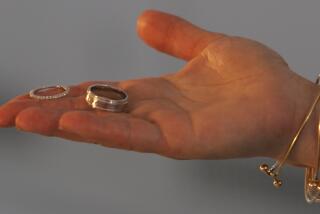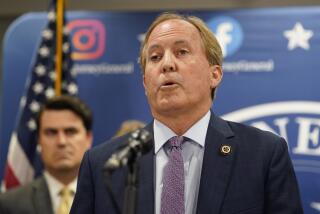COLUMN RIGHT : Adultery’s Legal; Why Not Marijuana? : Privacy issues should apply to a lot more than politician’s marital vows.
Bill Clinton’s defense of a politician’s right to privacy is long overdue. But before we cheer too much, let’s notice that he did not defend our right to privacy. Indeed, like most politicians, he has violated, continues to violate, and advocates violating our rights.
Governments at all levels--federal, state, and local--have pried into our private lives for a long time now. And they don’t just pry. They imprison. Men who want to engage in sodomy--that is, consenting sex with other willing men--still, in many states, risk arrest if they get caught doing it, even in the privacy of their own home. Police in Florida arrested Paul Reubens, who plays the character Pee Wee Herman, for masturbating in--of all places!--a porno movie house. And according to the Drug Policy Foundation, more than 400,000 people were arrested last year for possession of marijuana. Some of them have gone to jail for as much as 10 years.
Clinton is one of the jailers. He was attorney general of Arkansas and is now the state’s governor. In both positions, he helped send people to jail for various “crimes” in which they hurt nobody, except, possibly, themselves.
Remember that adultery was until recent generations a punishable offense in some places. Even more recently, so was abortion. Who is to say that sodomy or marijuana-smoking or other essentially private acts are more socially harmful? Certainly it’s not the government’s job.
Was Bill Clinton working to reform the drug laws so that people could make those decisions for themselves? No. He was actively involved in enforcing his state’s laws. In fact, he regularly claims to be proud of his record in Arkansas. Clinton might argue that an when adult smokes marijuana, he neglects his family. But the same can be said about adultery’s consequences on family.
Clinton stands firm on his right to make mistakes and to have those mistakes be his own business. He is right to do so. But then so are you if you make what others regard as mistakes. The problem is that, thanks to Clinton and other power-wielders like him, some of those mistakes can arbitrarily land you in jail.
What Clinton and many politicians like him really are advocating is a society of privilege. They are insensitive to the law’s violations of privacy, refusing to see the inconsistencies between what’s legal and what’s not. Most of them pursue policies that intrude into others’ private lives, but believe that their private lives are their own.
Politicians’ belief in their privilege is bipartisan. When Dan Quayle advocated re-restricting the right to abortion during the 1988 campaign, a reporter asked Quayle what his wife would do if she had an unwanted pregnancy. Quayle responded that that was his wife’s business. So according to Quayle, millions of American women should have their decisions made for them by the government, but his wife should be free to make her own.
I’m not saying that Clinton and other politicians should practice what they preach. Most of them preach about the government’s right to make our decisions for us and to throw us in jail if we don’t go along. I want everyone to be free of these intrusions. Both Bill Clinton and I think that Bill Clinton should be free to make his own choices. I want him to understand that the rest of us should be, too.
And if government is to respect our right to privacy, it must also quit regulating our economic choices.
We should be free to buy trucks from any willing supplier; instead the government imposes 25% tariffs on trucks that we buy from Japan instead of from Detroit. The government should let workers make their own wage agreements with employers, even if 51% of their fellow employees choose to be represented by a union; instead, the government forces 100% of the employees to join unions if a majority vote to join. It should let us save for our own retirements; instead the government’s Social Security program forcibly takes our money, gives it to retired people today and decides whether we later get a 1% rate of return or a negative rate of return on what the government euphemistically calls our contributions.
So whenever a politician defends his right to privacy, let’s withhold our applause until they say they’re willing to defend others’ rights as well.
More to Read
Sign up for Essential California
The most important California stories and recommendations in your inbox every morning.
You may occasionally receive promotional content from the Los Angeles Times.










